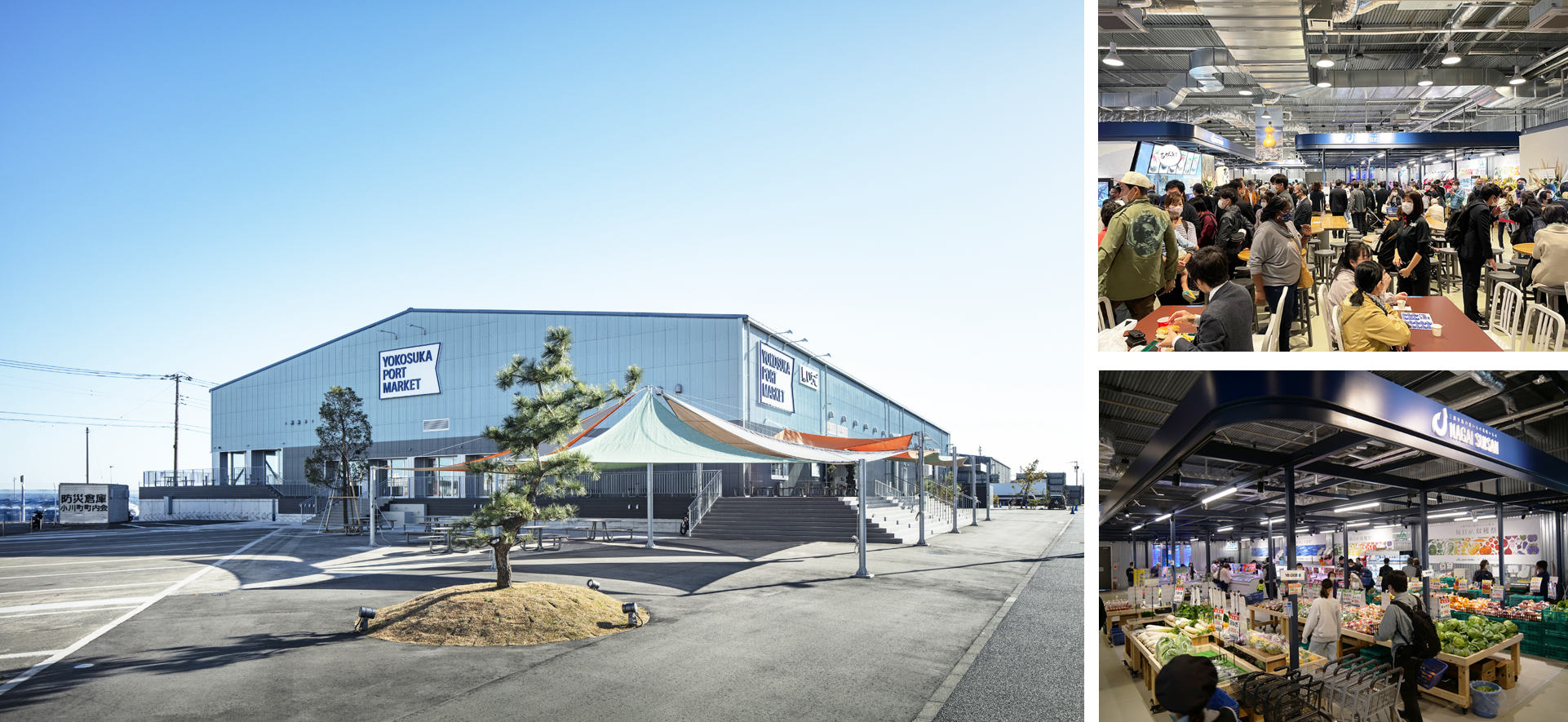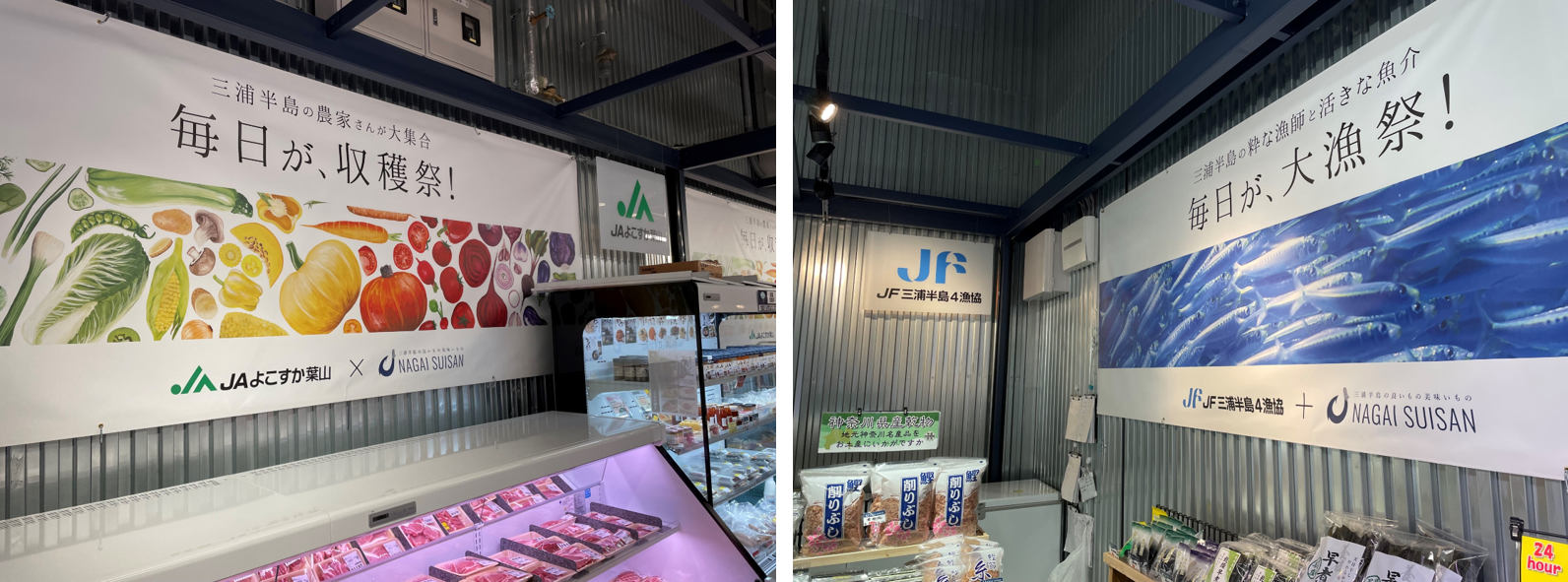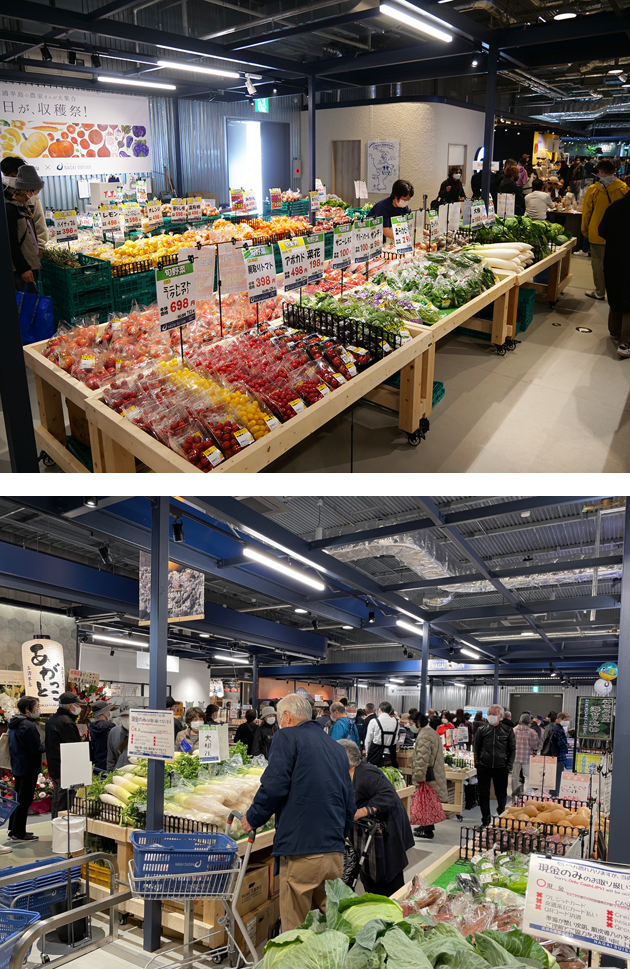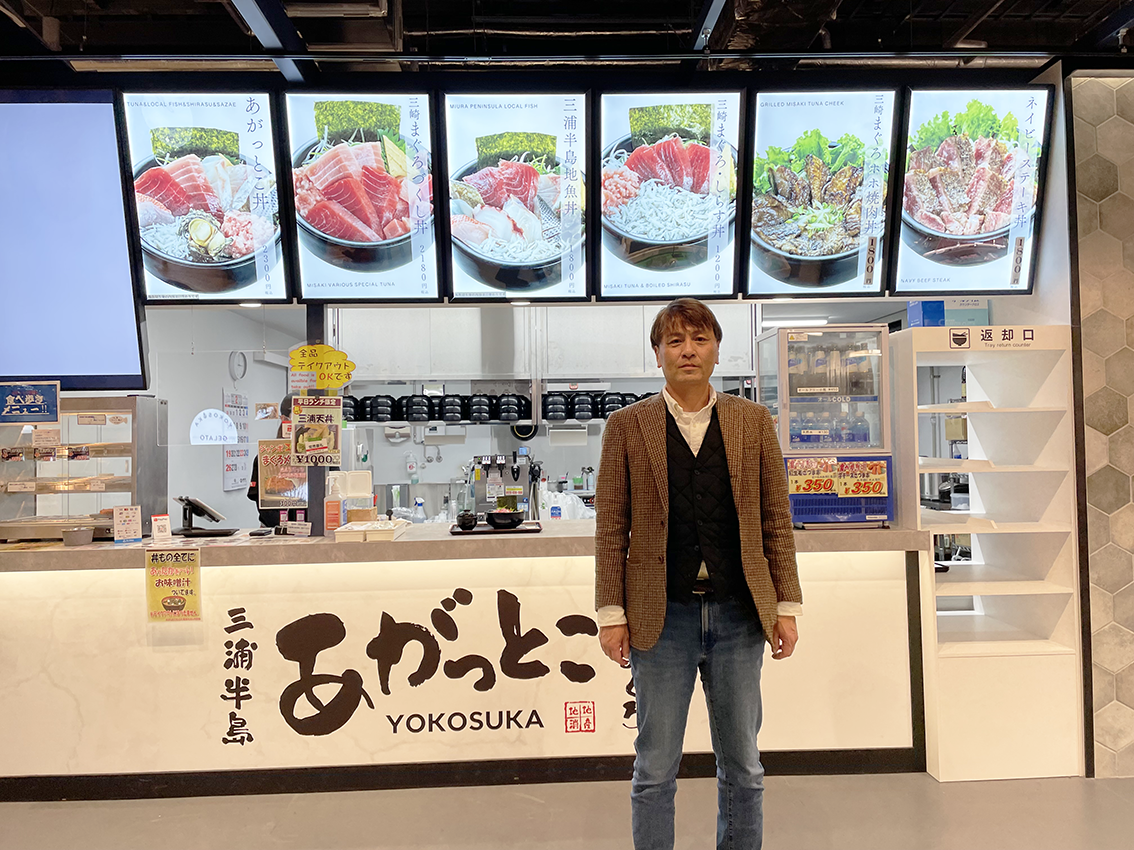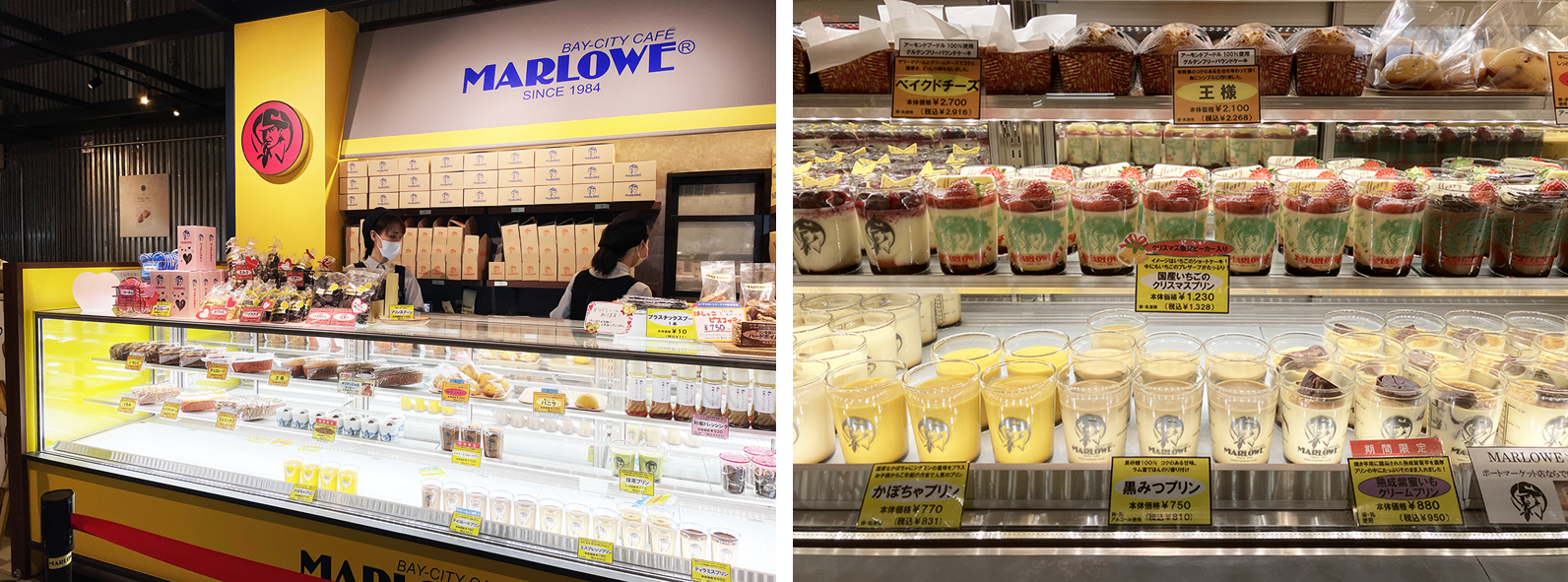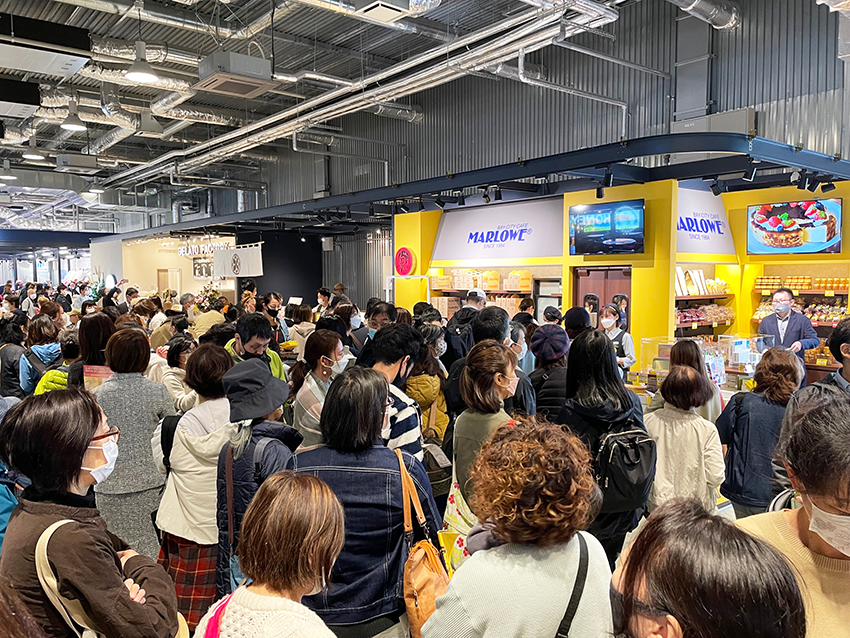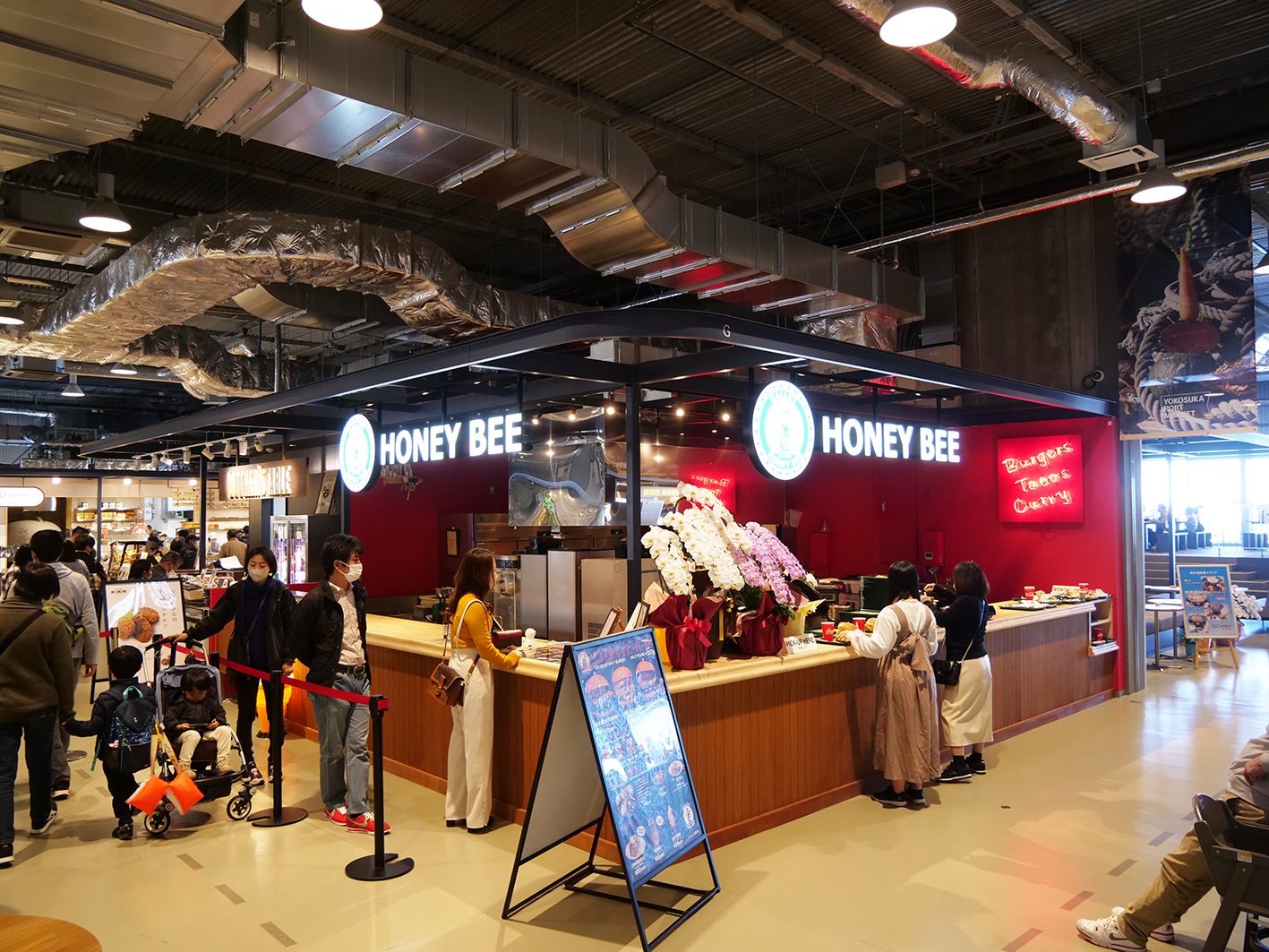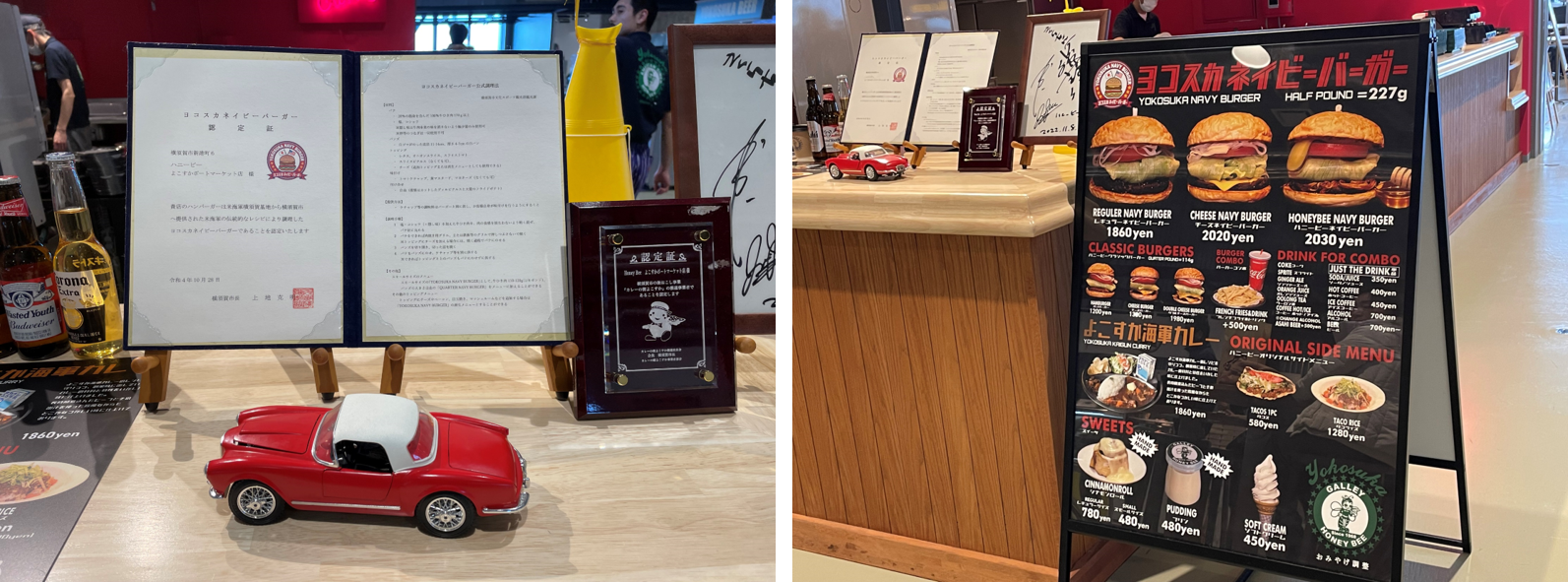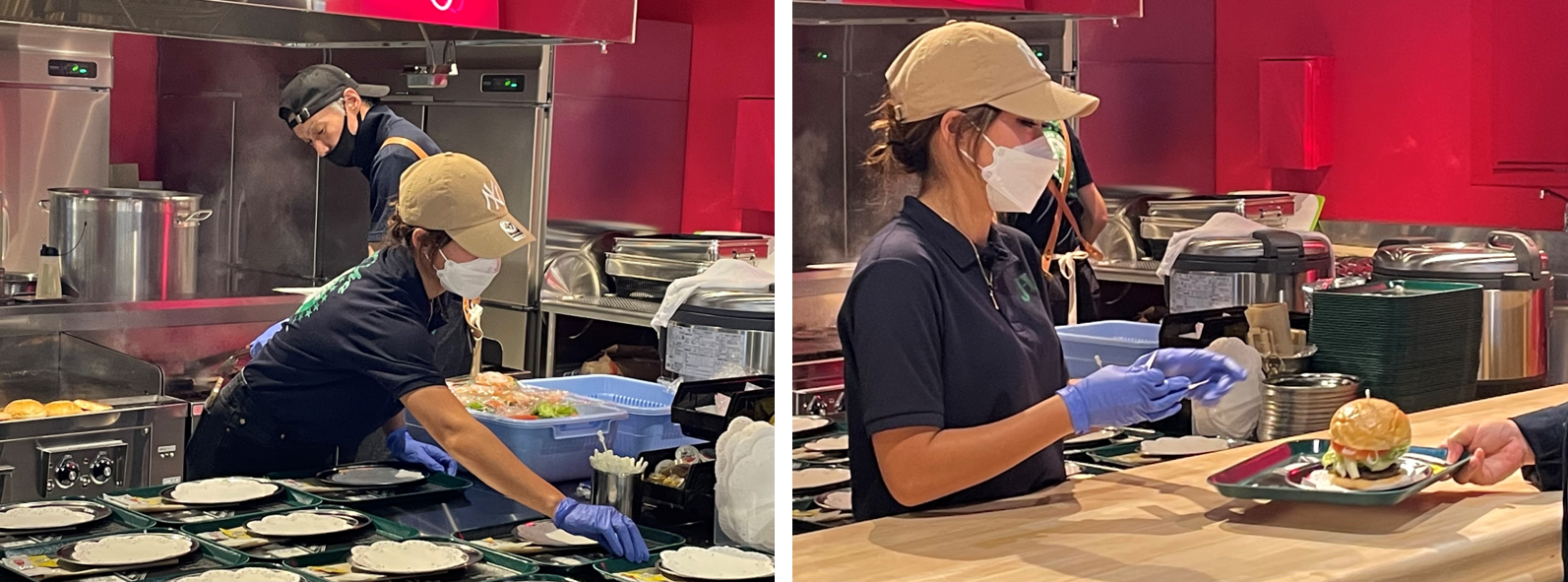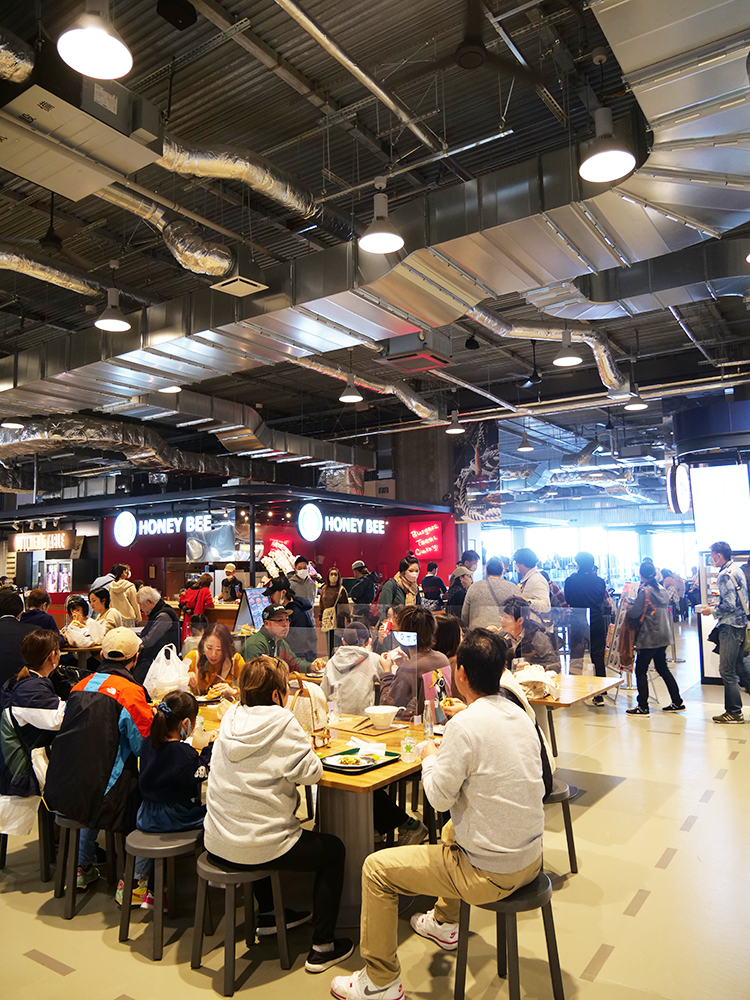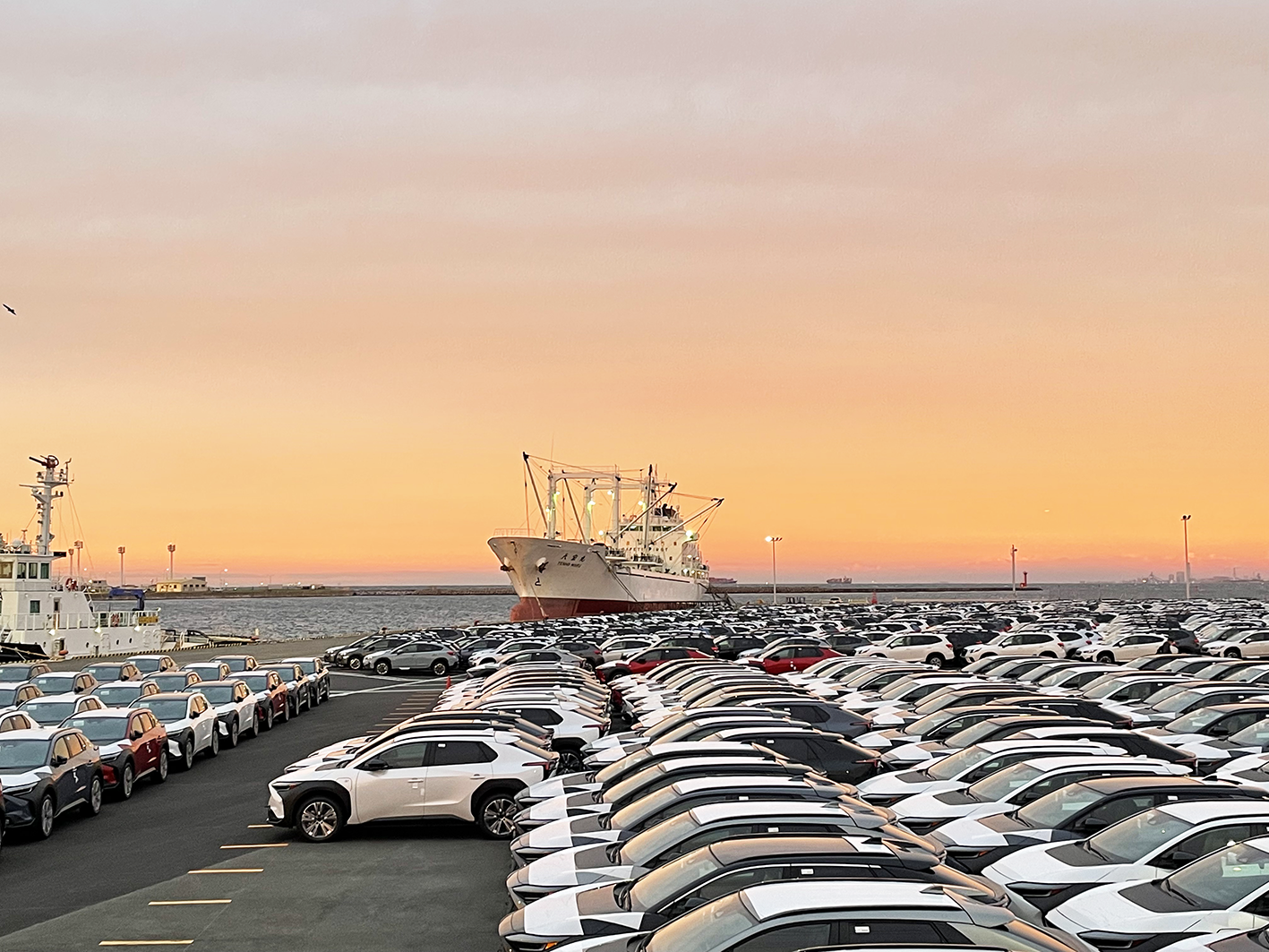
 Story
Story
Love for Yokosuka Handed Down From Generation to Generation
Ichigo Yokosuka Port Market - Part 2 -
Ichigo Yokosuka Port Market features the rich food culture of the area under the concept “Local Food & Agriculture of the Miura Peninsula.” Various tenants have come together to create each of their own unique worlds at the market, such as restaurants offering delicacies of the sea and land around Yokosuka and Hayama, long-established stores based in the local area, stores that are popular overseas, and stores that opened in the area for the first time due to their connections with Yokosuka.
They have a common objective. They chose to become tenants with hopes to revitalize the city of Yokosuka.
One of the tenants, Nagai Suisan, is a wholesaler of fresh seafood and processed marine products established in 1963, who was also a tenant at the former Yokosuka Port Market. The chairman, Kazunobu Shishido, says, “I, myself, needed to be excited to make other people feel excited. Now that I do, I want to create a catalyst for excitement in Yokosuka.”
“Upon the Market’s renewal, Yokosuka City asked me to become a tenant, but I initially refused to accept their offer. I didn’t want us to fail again for the second time in our hometown. I didn’t have the confidence, or feel any excitement.”
“Three months until the renewal opening, I unexpectedly had to spend a week at home. At the time, I remembered that I had said that I would think about it, and decided to give becoming a tenant at the new market some serious thought,” Shishido said. “I became more and more excited as I went on to think about our company, its business development, our employees, and the succession of our business.”
What is something that needs to be done, but hasn’t been done before? Shishido thought about it, and found there are issues with the agriculture and fishery distribution system.
Agriculture products each have their peak seasons. It is a burden on restaurants and retailers to have to sign individual contracts with each farmer to procure different types of fruits and vegetables. If they can sign a contract directly with Japan Agricultural Co-operative (“JA”), they can offer fresh fruits and vegetables that are in season. Shishido immediately made an appointment with JA Yokosuka Hayama and asked them, “Coordinate and communicate with famers equally to facilitate shipments of their products.” JA’s response was that they had never done that before.
Note: JA was established as “a cooperative organized to protect and improve the businesses and lives of farmers and contribute to society based on the spirit of mutual help.” JAs are organized at the prefectural and national levels. Crops are collected and sold in large numbers and uphold a relatively standardized quality.
“If your response is not a No, and just about never having done it before, then it’s not impossible. If JA can take the lead and gather farmers, that would be great! JA can do it. Let’s do it together!” Shishido visited JA many times until they finally agreed.
Shishido also wanted to do something about the procurement of seafood.
Since the supply of seafood from just Yokosuka would be limited, he wanted to gather seafood from the entire Miura Peninsula. This would require cooperation from the four local Japan Fisheries (JF) cooperatives. Shishido visited the heads of the four JFs, one by one, and asked for their cooperation. He convinced them to take part in the project by promising them that it would cost them no extra money and that they would bear no risk. As a result, the heads of the four JFs, Miura JF, Tobu JF, Nagai JF, and Kinomiya JF all agreed.
Food from the land and the sea of the Miura Peninsula, all in one place. It was something no one had done before. It was exciting. Shishido didn’t stop at food.
Yokosuka did not have any notable local souvenirs and so the thought was there must be something noteworthy made in Yokosuka that is not yet widely known. Shishido asked around, searched the internet, and visited people making and selling “Made in Yokosuka” products. At that time, the opening date of the Ichigo Yokosuka Port Market was only two months away.
A product that has been used for many years gets better with age. If the purpose of the market is tourism, it shouldn’t be the same all year round. There are advantages to things that are unchanged, but there are also disadvantages. Shishido says it is important to know the difference between the two.
At the Ichigo Yokosuka Port Market, Shishido’s company, Nagai Suisan, operates a store selling seafood products, agricultural products, and Yokosuka souvenirs, as well as a restaurant serving seafood from the Miura Peninsula, creating a lively atmosphere every day. “I am always thinking about our next move. There are still many things we can do to make our customers smile at the Ichigo Yokosuka Port Market,” Shishido said with a stern but loving smile.
The beaker custard pudding shop “Marlowe” can be seen on the right as soon as you enter the entrance. The custard pudding and caramel poured into a heat-resistant beaker with a caricature of the famous detective Philip Marlowe is popular not only amongst locals but also nationwide.
“More than anything, we have to be a store beloved by the local community,” says Takeshi Shirogane, the son of the founder, and Vice President of Marlowe.
“Marlowe was founded in Yokosuka in 1984, and opened a café in Hayama. The beaker custard pudding was created after customers asked for the pudding to go in heat resistant glass beakers. We continue to focus on product quality, as the chairman/founder and former head chef had, and on making our products gluten-free. We are also environmentally conscious, and have been reusing our beakers since our founding,” he says.
Shirogane is full of appreciation for the local community and natural resources, and says sincerity, the motto of its chairman/founder, permeates the company.
“Whenever the staff needs to make any decisions without their boss, I always tell them to base their decision on what would make the customers happy. This way, they can sleep better at night,” says Shirogane, laughing.
Shirogane had always wanted to do something about the lack of industries in his hometown.
“I want to revitalize Yokosuka.”
It was April 2022 and the company was thinking of building a new cake and pudding factory to expand when Yokosuka City approached them about opening a shop.
“When the Ichigo Yokosuka Port Market opened, our local repeat customers visited our new store. Our sales exceeded our forecasts, and even now, a lot of customers visit us.”
There was a pastry shop that Shirogane always went to as a child whenever there was a family event. He says shopping there and the taste of the desserts are fond memories.
“There are nationally-recognized stores from Kanagawa, such as Kiyoken known for their siu mai dumplings, and Toshimaya known for their pigeon-shaped cookies. Our company hopes to have people think of Marlowe when they think of Kanagawa. We want customers to choose us when they have a special celebration.”
Marlowe does not open new shops just for the sake of expansion.
Because the company has been serving pudding since its founding, there are customers from their early years who now bring their children and grandchildren, and they want to keep treasuring these relationships.
Shirogane wants to bring more liveliness to Yokosuka, and through its Ichigo Yokosuka Port Market shop create a brand where people think of Marlowe in Yokosuka.
The company emphasizes the importance of staff training, and Shirogane says it is vital for each staff member to see themselves as part of the Marlowe brand.
Yokosuka offers the Yokosuka Navy Burger, a burger that is certified by the city and meets strict certification criteria, including the size and weight of the patty. Yokosuka City has promoted it as a tourism asset for its delicious taste and serving style that makes it popular amongst American soldiers. It is considered soul food within a city that has the U.S. Navy base.
“We still use the exact same recipe as when we first developed our burger. The history around it is just great,” says Sakito Ueunten, the area manager of HONEY BEE, a shop serving the certified Yokosuka Navy Burger.
“We aren’t allowed to sell it as a Yokosuka Navy Burger to customers unless we receive certification. I think it’s great that such importance is placed on care and quality in Yokosuka, and I hope to further promote these aspects of the Yokosuka Navy Burger.”
HONEY BEE was founded in 1968. The founder was a former Navy base chef, who opened up a shop in front of the base.
The Ichigo Yokosuka Port Market shop is its second shop.
HONEY BEE’s staff includes people of all ages, from high school students to staff in their 50s, and everyone was born in Yokosuka. All staff spend their first day on the job at the main shop.
“There is a history at the main shop that can’t be replicated elsewhere. That history is more important than opening up more shops. There are a lot of things that are unique to the main shop, including the tables, chairs, tableware, displays, and the scenery from the shop.”
A sign at the shop says “GALLEY,” an American military term for the kitchen of a combat ship or plane.
“This city can’t exist without the Navy base. When a big ship docks, Yokosuka’s population grows by about 5,000 people. There may be varying opinions about the base, but personally, I’m glad it’s here.”
HONEY BEE’s Ichigo Yokosuka Port Market shop has a clean, vivid interior, and a large sign with the shop’s logo.
In deciding how to incorporate Yokosuka’s atmosphere into the shop, HONEY BEE decided to build an open kitchen. The shiny, stainless steel counter is reminiscent of the main shop. During lunch time, a line of people await the juicy, certified patties cooking in the open kitchen.
“After opening, customers of our main shop and customers that used to eat at our main shop when they were young came to visit us.”
HONEY BEE is a shop that opened because of the base, and is part of the city’s culture. Amongst all of the people that are proud of Yokosuka’s uniqueness and contribute to the city’s development, there are younger generations like Ueunten.
“I personally want to test if HONEY BEE can make it outside of Yokosuka. If that happens, I want the shop to be near the ocean and the port, and convey Yokosuka’s culture. We have our own style that differs from large franchise shops. This is something that can’t change.”

